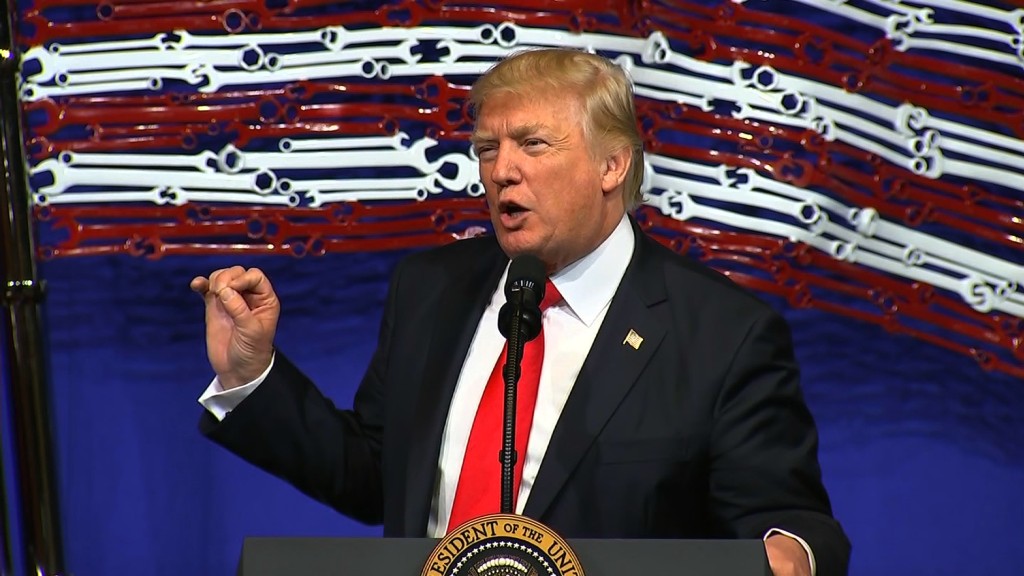
President Trump spends a lot of time promising to bring back steel jobs and coal jobs.
He plans to sign an executive order Thursday directing the administration to investigate whether foreign steel imports are harmful to American national security, a senior administration official told CNN.
Earlier this week in Wisconsin, he announced "buy American" rules that will make it harder to use imported steel in roads and other federally funded infrastructure projects.
And last month Trump vowed to end "the war on coal" by canceling "job-killing regulations" and putting miners back to work.
It's true that there are a lot fewer jobs in steel and coal than there used to be in the United States. But those industries are being battered by a lot more than foreign imports and cumbersome government rules.
In fact, they are being eroded by long-term changes in the economy, and in the industries themselves, that won't be reversed by any piece of paper Trump can sign.
Related: Despite trump promises, Keystone pipeline won't have to use American steel
About 300,000 steel mill jobs have disappeared in the last 40 years, a 70% drop.
American steel is facing tougher competition from foreign producers, such as those in China. About 25% of the steel used in the United States last year came from foreign sources. That's one reason the industry cheered Trump's executive order on government contracts.
But infrastructure accounts for a relatively small amount of the nation's steel consumption -- a bit less than 10%, according to the American Iron and Steel Institute, the industry trade group.
And foreign competition is nothing new for the steel industry. Imports have never fallen below 15% of the U.S. market in the last 40 years. Most years they have accounted for 20% or more.
Related: Coal country's message to Trump - We want jobs of the future
The large American mills that turn iron ore and other raw materials into steel face more competition from domestic "mini-mills," which melt scrap steel into steel products, than they do from overseas.
Traditional steel mills accounted for nearly 80% of domestic production 40 years ago. Today they have only about a third. Beleaguered steel towns have more to worry about than a mill halfway across the globe.
Steel jobs are being lost to improved technology that has made steelmaking far more efficient. In the early 1980s, it took 10 hours of work to produce a ton of steel. Today it take less than two hours, according to industry figures.
Related: Trump move to roll back climate rules won't bring coal or mining jobs
Coal mining jobs, meanwhile, have also fallen 70% since 1985, a loss of 120,000 jobs.
The coal industry has lost much of its customer base not because of regulations but because natural gas production has soared, pushing down the price of that cleaner source of electrical power.
In addition, falling costs for green energy, such as solar and wind power, have cut the demand for coal. So has a move by overseas markets, like China, to shift away from coal in an attempt to clean up badly polluted air.
"There are a lot of market forces already driving the utility industry towards cleaner energy," said Kevin Rennert, visiting fellow with Resources for the Future, a Washington think tank concentrating on energy issues. Getting rid of rules to combat global warming "doesn't change that," he said.
The good news is that those industries have produced a jobs boom of their own that has dwarfed the jobs losses in coal mines. In January, the U.S. Energy Department estimated that solar power today accounts for 373,000 jobs, while wind power accounts for an additional 101,000.
--CNN's Kevin Liptak contributed to this report.


